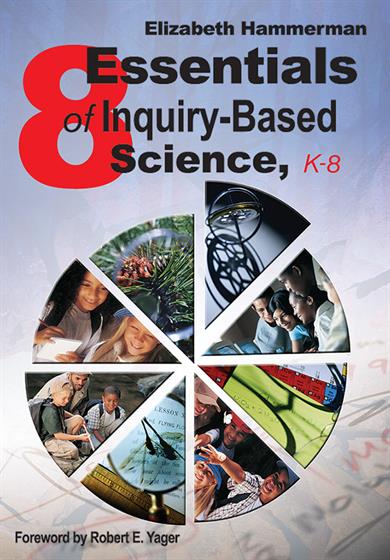Foreword
Preface: Improving Student Achievement Through Professional Development
Rationale for Professional Development in Science
Themes and Threads
The Goals of Eight Essentials
Using Eight Essentials of Inquiry-Based Science in Study Groups and Professional Development Initiatives
An I.D.E.A. Approach
The Eight Essentials of Inquiry-Based Science
Introduction: Inquiry-Based Science and the Inquiry Classroom
Defining Inquiry-Based Science
Inquiry as a Process for Learning
Teaching Thinking Through Inquiry
Teaching Scientific Habits of Mind Through Inquiry
Guiding and Facilitating Learning Through Inquiry
Implications for the Classroom
Using Eight Essentials as Criteria for Assessing Curriculum & Informing Instruction
Traditional vs. Inquiry Classroom Behaviors
1. Essential #1: Inquiry-Based Science Develops an Understanding of Basic Concepts
Understanding Big Ideas in the Curriculum
Standards as Concept Categories
Using Standards to Inform Curriculum and Instruction
Using Activities to Engage Learners and Promote Inquir
2. Essential #2: Inquiry-Based Science Develops Process and Thinking Skills
Science Process Skills
Complex Thinking Skills
Activities That Develop Skills for Learning and Concept Understanding
Guided Inquiry Activities for Upper Primary/Intermediate Level: An Introduction to Metric Measurement and the Structure of Seeds
Student Constructed or Guided Inquiry for Intermediate/Middle School Level: Heating and Cooling Rates of Water and Land
Guided Inquiry Activity for Intermediate/Middle School Level: Creating Climagraphs
Using Visual Organizers to Show Connections
3. Essential #3: Inquiry-Based Science Actively Engages Students in a Learning Cycle
Defining a Learning Cycle
The Five E's Lesson Plan
Guided Inquiry Lessons Using a Five E's Format
Primary Level: The Ear and Hearing
Intermediate Level: It's All in the Family - A Study of Heredity
Analysis of It's All in the Family
Classroom Applications of the Learning Cycle
4. Essential #4: Inquiry-Based Science Builds a Greater Understanding of the Ways That Science-Technology-Society (STS) are Linked
Goals of S-T-S
Defining S-T-S
Technology as Computers and Other AV Equipment
Technology as Tools for Learning
Technology as Concept Application
Technology as Problem-Solving and Inventions
Technology as Tools for Learning
Environmental Problems and Issues
Analysis of a Case Study: Large Numbers of Elk Die in Wyoming
Technology as a Production System
Applying Technological Design in the Classroom
Activities That Engage Students in Problem Solving and Technological Design
Using Technological Design to Show Concept Understanding: Understanding Adaptation
Building Technology and Technological Design Into the Curriculum
5. Essential #5: Inquiry-Based Science Provides Experiences Necessary to Support and Develop or Modify Interpretations of the World
Misconceptions
Analyzing Misconceptions Case Study
Using Discrepant Events in the Classroom
Mediated Learning Experiences
Dispositions That Underlie Science
6. Essential #6: Inquiry-Based Science Enhances Reading and Writing Skills
Integrating Reading
Analyzing Current Events Through Articles
Integrating Writing
Using Science Notebooks
Designing Science Notebooks
Using Science Notebooks to Enhance Reading, Writing, Math, and Thinking: Comparing the Strength of Magnets
Criteria for Scoring Notebooks
Developing Thinking Skills Through Analysis, Creative Writing, and Analogies
Analogies
Analogies in Science
7. Essential #7: Inquiry-Based Science Allows for a Diversity of Strategies for Learning
Analyzing Learning
Methods, Strategies, and Best Practices
The Creative Use of Strategies
8. Essential #8: Inquiry-Based Science Allows for a Variety of Ways for Students to Show What They Know and Are Able to Do
Fundamentals of Assessment
Multiple and Varied Assessment
9. Using Eight Essentials to Enhance Learning
Eight-Point Lessons
Using the Eight Essentials to Analyze Curriculum Materials
Resource
Strategies for Instruction or Assessment Linked to Multiple Intelligences
References
Index



